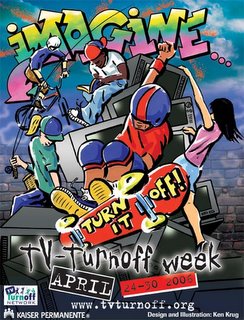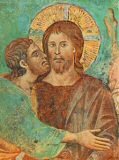
Today is the anniversary of the inauguration of George Washington as our first president. It has been two hundred and seventeen years since that event and folks are still attempting to find out what really happened.
What’s the big deal? Why does it matter? Well, for some folks it’s a matter of four little words…’so help me God’.
In a past post, I lamented that I often run across educators who innocently buy into historical myths either by accident or ignorance. At the end of that particular post involving George Washington I listed additional information and labeled the list “non-myths” (at least until proven otherwise).
A drop-in reader, Cassandra, emailed me with an observation from the other side of the fence. She said, “Please help students realize that the burden of proof is upon those who are making the statement, and not the other way around.” I agree…especially if we don’t want to continue teaching history myths. However, as a teacher in the classroom every day I cannot investigate every single piece of historical information to make sure there are primary sources to back it up. Sometimes we just have to trust the researcher, the textbook authors, and the teacher resource creator. However, as a classroom teacher I do have a responsibility to strive to remain current in my subject matter and not simply teach the text.
There is still quite a debate regarding George Washington and the words that he has been reported to have added to the end of his oath of office-----‘so help me God’. According to my e-mailer many different researchers have not been able to locate a bona fide primary resource to verify George Washington uttered the words “SHMG”.
My e-mailer urges me to have my students write or e-mail the Library of Congress and have the library provide us with information regarding the primary sources used to determine the notion that George Washington uttered the words in question.
This might prove to be an interesting activity. As an educator I want to make sure that I teach truths and provide as many possibilities to examine primary sources. So…I’m planning on crafting an inquiry to the Library of Congress. I doubt I involve my current group of students because other academic demands are taking up much of our time. I also feel that much of this information in its original form is too complex for nine year olds. I would much rather get my hands on the sources and put them in a more presentable form so that they can comprehend what they are looking at.
Here’s a except from Cassandra’s email to me:
On January 20, 2001 the Washington Post carried an article with the title, "Thundering On The Metroliner With George Washington's Inaugural Bible." The article explained how the same Bible that had been used at George Washington's Presidential Inauguration of April, 30 1789 was being transported from New York City to Washington D.C. for use at President-elect George W. Bush's Inauguration.
The article also described how after the Bible had "arrived on the balcony [of Federal Hall], Washington ... repeated the oath of office 'in a loud, firm voice,' [and] according to one account. 'He then added, 'So help me God,' and bent forward to kiss the Bible.'"The article continued, "[New York State Chancellor Robert R.] Livingston shouted, 'Long live George Washington, president of the United States!' and everyone went nuts. (Whether Washington actually added "So help me God" to the oath is not supported by any eyewitness accounts, according to Philander D. Chase, editor of the Papers of George Washington project at the University of Virginia. 'He may have said those words,' Chase said. After the swearing-in, Washington went inside to read his -- and the new country's -- first inaugural address in the Senate chamber."
Nobody onboard the Metroliner, at that moment, said, "Hold on, stop the train!" They should have, because Philander D. Chase had just made an historic statement that flat out challenged what educators and historians over the last 145 years have come to presume as a matter of fact.
The "account" alluded to by Philander Chase is attributed to the well-known author, Washington Irving, which never came to light until 1854. The main problem with Washington Irving's report is that Irving was six years old at the time of the inauguration, and when the inaugural scene is described it is just as if a ubiquitous author was narrating the story while standing on the second-story balcony of Federal Hall, when we know he wasn't.
Since the time of its first telling, Washington Irving's polished version of how George Washington supposedly added the words, "so help me God" to his oath of office has been repeated over and over again. It was revitalized during the 1889 Centennial Commemoration of George Washington's Inauguration, and then again in 1957 it was most notably repeated by the Nobel Prize winning historian, Douglas Southall Freeman.
Trying to overcome the idea that George Washington added the words, "So help me God," to his constitutionally prescribed presidential oath is going to require an abundant level of patience. However, if the reader takes the opportunity to visit the new Donald W. Reynolds Museum and Education Center the Mount Vernon Estate and Gardens, which is planned to open on Oct. 27, 2006, with its life-size diorama vignette showing a re-enactment of George Washington taking his presidential oath, then the visitor will be able to experience a firsthand account of George Washington taking his Inaugural Oath of Office. This way, one person at a time, we might be able to de-"mythize" at least one moment of history.
Yours truly,
Cassandra
So here’s your turn to weigh in if you have any pertinent information. I’d love to hear from you, and as soon as I get a response from the Library of Congress I will post away….so help me God!







